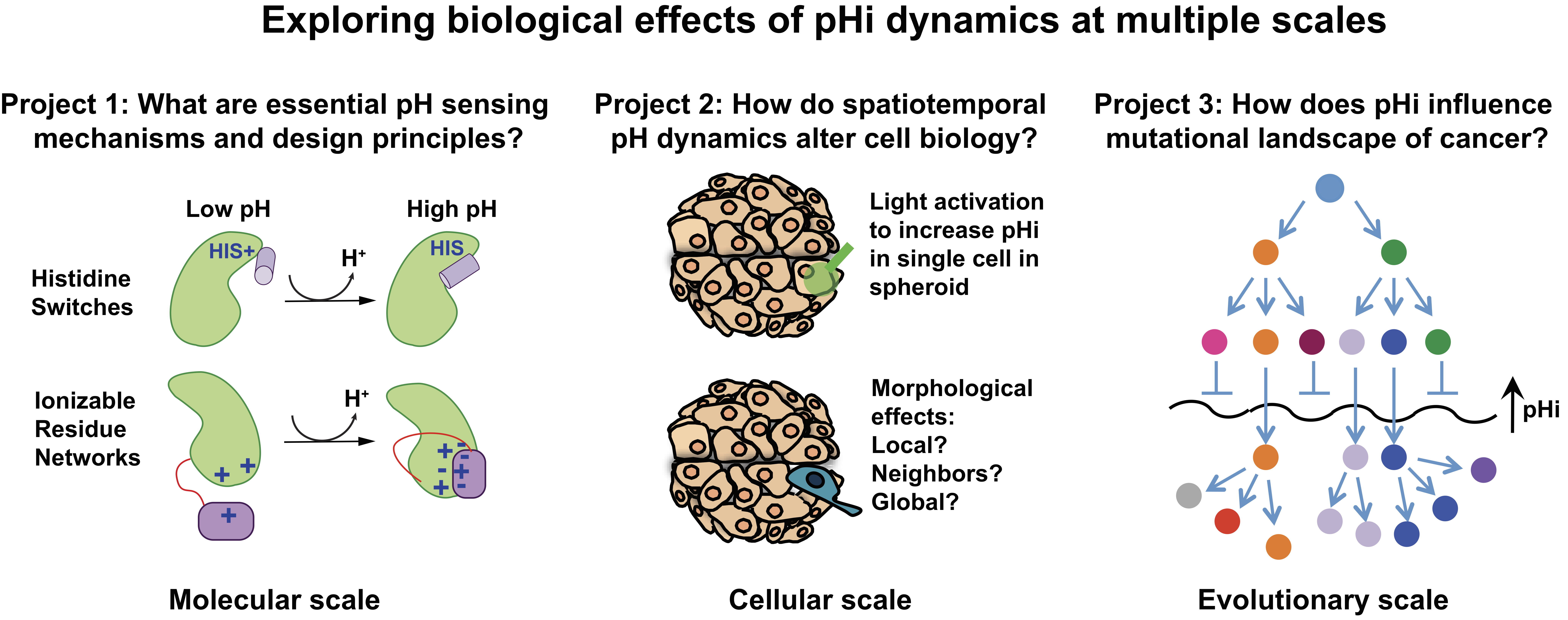The White Lab is studying how intracellular pH dynamics regulate proteins, pathways and cell behaviors, with approaches across experimental scales. We apply the results of our work to answer fundamental questions about the molecular mechanisms driving cancer cell behaviors and how those mechanisms can be exploited for more effective and safer cancer therapies.
Transient increases in intracellular pH (pHi) are necessary for normal cell processes of cell-cycle progression, migration, and differentiation while dysregulated pHi dynamics are linked to diseases such as neurodegeneration and cancer. While the effects of pHi on global cell behaviors is well established, the proteins and molecular mechanisms that drive these pH-sensitive responses are largely unknown. Furthermore, a lack of tools to directly, specifically, and spatiotemporally manipulate pHi has restricted experiments probing how pH dynamics alter individual cell behaviors. Finally, decreasing pHi can limit tumor progression in some models, but criteria to identify cancer subtypes or patients that would benefit from pHi-lowering drugs are critically needed.
A long-term goal of our research is to understand how protonation events are integrated to induce coordinated changes from proteins, to macromolecular assemblies, to cell behaviors and complex tissue-level effects. To address this goal, we are performing interdisciplinary research across experimental scales. At the molecular scale, we are identifying pH-sensing mechanisms utilized by both wildtype and mutant proteins. At the cellular scale, we are developing new optogenetic tools to spatiotemporally manipulate pHi in living cells to better understand how pHi changes are communicated between cells. At the evolutionary scale, we are interested in understanding how the constitutively increased pHi of cancer shapes the mutational landscape of human cancers.

